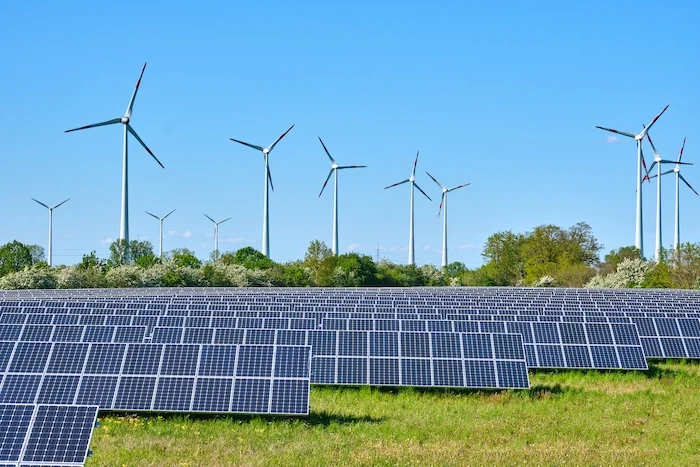Table of contents
- Reduce Your Carbon Footprint at Home
- #1 Eat Less Meat
- #2 Grow Plants to Reduce Your Carbon Footprint
- #3 Embrace renewable energy sources
- #4 Invest in energy-efficient appliances and products
- #5 Use eco-friendly travel options when possible
- #6 Compost your scraps to reduce your carbon footprint
- #7 Save Sustainably
- #8 Fly Less to reduce your carbon footprint
- #9 Children and Pets
Reduce Your Carbon Footprint at Home
Taking just a few simple steps to reduce your carbon footprint can make a huge difference! Learn how to reduce your carbon footprint with these 9 easy habits.
Reducing your carbon footprint is one of the best things you can do for the environment. Simple changes in how you live, shop, and commute can make an impact on your overall emissions. Here are 7 easy ways to reduce your carbon footprint and protect the planet.
#1 Eat Less Meat
Eating a plant-based diet or locally sourced food is one of the most effective ways to reduce your carbon footprint. Plant-based diets are better for the environment since they require less energy and resources to produce, meaning fewer emissions. Eating locally sourced food also helps reduce your carbon emissions since it eliminates the need for cross-country transportation.
Cutting back on your consumption of meat – or completely eliminating it from your diet – can make a big difference in reducing your overall emissions. Eating vegan meals at least once a week and replacing beef with other proteins like legumes, tofu and seitan can help reduce your environmental impact.
#2 Grow Plants to Reduce Your Carbon Footprint
Growing plants is one of the simplest and effective ways of combating climate change (which is caused by greenhouse gas). As plants grow they take in carbon dioxide (CO2), a major greenhouse gas.
#3 Embrace renewable energy sources
Choosing to power your home with renewable energy sources like solar and wind reduces your overall carbon footprint. Consider purchasing ‘green’ electricity from your utility provider or installing solar panels directly onto your roof. Even taking small steps by switching off unnecessary lights and appliances can save you money on electricity bills while reducing your carbon footprint.

#4 Invest in energy-efficient appliances and products
One of the easiest ways to reduce your carbon footprint is to replace inefficient products and appliances with more energy-efficient alternatives. Making environmentally conscious purchases where possible can help reduce both energy costs and emissions in your home.
Look for energy-labeled products, such as light bulbs that carry Energy Star ratings, when shopping. You’ll be helping the planet while saving money — a win-win!
#5 Use eco-friendly travel options when possible
Try to use more eco-friendly modes of transport, such as walking, cycling, rollerblading, or public transport when travelling short distances. Additionally, carpooling with friends and family takes the hassle out of travelling while also doubling up on your green efforts. And if you own a car, make sure it’s well maintained to help reduce emissions and increase fuel efficiency.
If you plan on purchasing a car anytime soon, make sure you buy an electric vehicle (EV).
#6 Compost your scraps to reduce your carbon footprint
Composting is a great way to reduce greenhouse emissions. Food waste that breaks down without oxygen emits the greenhouse gas methane, which is a major greenhouse gas. Indeed this is so important we have written a piece on how to recycle effectively at home. It is called urban composting.
#7 Save Sustainably
The last thing you should do is make financial investments (whether it is banking, insurance, or superannuation) with financial corporations that are involved in the fossil fuel industry. You can also boycott companies that support other companies involved in extracting fossil fuels that heat our climate.
So do some investigation to find out whether your financial services providers are ethical and promote sustainable investment. If we all do the right thing, corporations who fund in fossil fuel industries will be forced to restructure their portfolios in a way that supports sustainability.
Two sustainable financial corporations we support are RaizInvest and Bank Australia.
#8 Fly Less to reduce your carbon footprint
While many sectors are reducing emissions, aviation’s have continued to grow. Carbon emissions from the airline industry grew by 75 per cent from 1990 to 2012. It’s expected they will continue to grow rapidly until 2050. If left unchecked, they could consume a full quarter of the available carbon budget for limiting temperature rise to 1.5 C.
#9 Children and Pets
It’s been calculated that an average dog has an ecological footprint twice as large as that of a large car. Like meat-eating, pet ownership is encouraged by a vast industry; the pet insurance sector alone is said to generate more of some nations GDP than fishing. Pet food, provision of veterinary services and breeding the creatures are big businesses, all with an interest in promoting the benefits of owning a furry friend.
Relevant Content
- 7 Smart Ways to Save Water
- Personal Transport
- Urban Composting
- Recycle Waste
- Survive Climate Disasters

